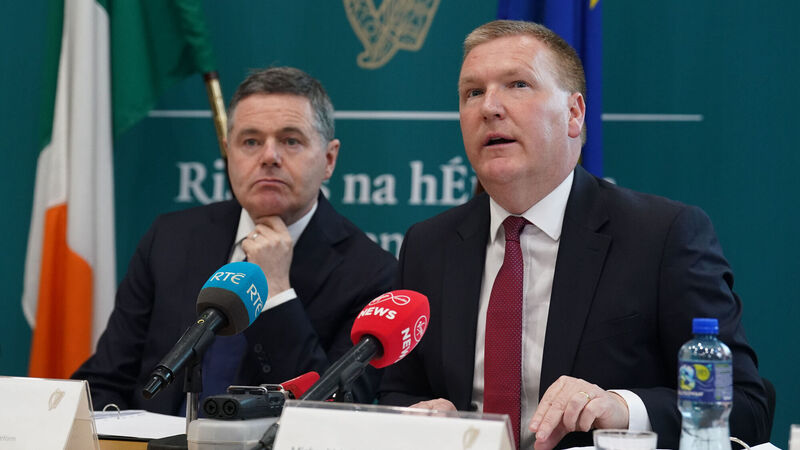Corporation tax receipts drop nearly 25% as expenditure rises

Public Expenditure Minister Paschal Donohoe and Finance Minister Michael McGrath at yesterday's press conference on the publication of Ireland's Q1 2024 exchequer returns. Picture: Brian Lawless/PA











